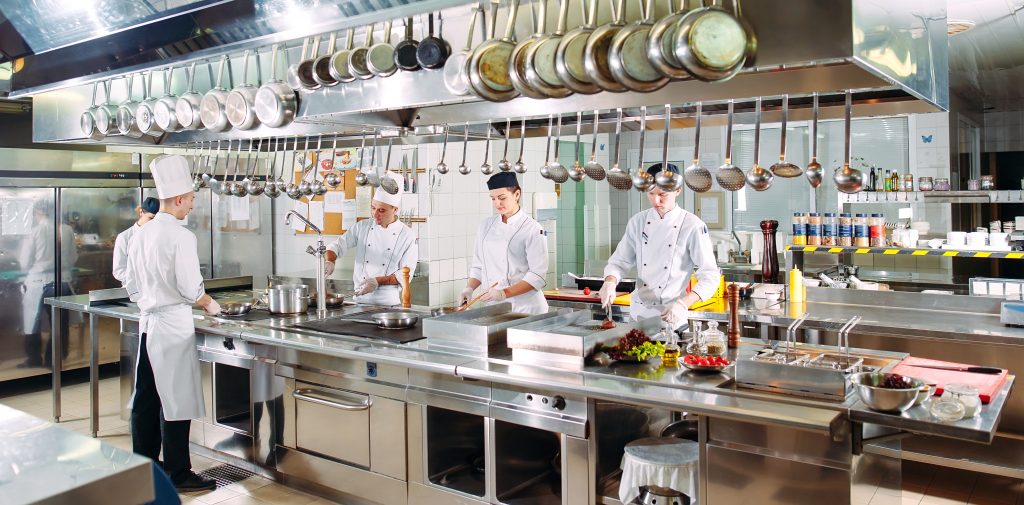This post contains affiliate links. Click here to read my affiliate policy.
Last Updated on October 7, 2023
If you operate in the food industry, you must ensure that your products are safe for consumption. Failing to ensure food safety in your business could cause your customers to get ill. It might lead to lawsuits, reputation damage, business closure, or hefty fines. Following food safety regulations helps reduce the risk of food contamination in your restaurant or manufacturing company.

Besides that, it’s also essential to consider measures that will aid in improving food handling, preparation, and storage. These can help you enhance food safety in your business, and below are some that you can try:
- Consider An X-Ray Inspection System
You could start by leveraging technology to improve food safety in your commercial kitchen or manufacturing firm. For example, if you sell fresh chicken, you must ensure your products aren’t contaminated by glass, bones, stones, harmful metals, or other unwanted materials. In this case, Xray inspection for chicken bones maybe something to consider.
Though manual processes of checking for contaminants exist, the x-ray system may be more precise and effective in detecting foreign materials in fresh chicken products and other types of food.
- Invest In A Food Safety Management System
You could also invest in a digital food safety management system (FSMS). An FSMS could assist in ensuring that you comply with the local or international food safety standards. Besides, such a system might help you prevent hazards that can make your customers develop health complications.
Since there are several food safety guidelines, standards, and regulations that are changing and improving, it can be challenging to keep up. You could create a form of documentation to be followed at work. However, the data can be overwhelming to your employees and you. Also, it can be easy to forget some things, especially on busy days or hours.
An FSMS could make things easier for you. Many have updated international food safety guidelines you and your employees can follow. Also, others offer real-time information about food safety risks and hazards.
An FSMS can also be helpful in multiple stages such as food packaging, preparation, preservation, display, and selection. It can assist in ensuring that your business meets cleanliness standards when preparing food and that the products are preserved at the correct temperatures. Also, it can help you ensure that packaging and display are done correctly to avoid contamination.
- Hire Certified Food Handlers
Hiring certified food handlers is also another essential measure to consider. In some regions, it’s a legal requirement. Thus, it’s always necessary to have the right employees in any business. In the food industry, certified handlers can elevate your company.
Such individuals have been trained in food safety, cleaning and sanitation, temperature and time, allergens and cross-contamination prevention. They also have efficient personal hygiene skills, know the food industry’s proper dress code, and several other things. All this knowledge can be b in your commercial kitchen or manufacturing company. Such individuals will handle food more safely, reducing the likelihood of bacteria outbreaks and food-borne diseases in your business.

If you have staff members without a food handler certificate, they can take an online course. However, it has to be nationally recognized and accredited. This way, a local health inspector might accept the certificate. Regular training is essential even after attaining the documentation. It helps ensure your employees learn new food safety processes and don’t forget those they already know. Also, they’ll have the guidelines fresh in mind at all times, regardless of how busy they may be.
- Ensure Proper Waste Management
Improper waste management can cause pest infestation and make your food preparation, display, packaging, and storage areas unhygienic. As a result, you’ll likely offer customers contaminated food that can cause illnesses.
Therefore, you must ensure proper waste management in your business. Consider storing garbage safely, having particular areas to place it, and making sure it’s disposed of regularly. Also, review and adjust your waste management system for efficiency. For instance, you could consider audits, inspections, or garbage reduction techniques like going paperless, recycling, and not overstocking.
Conclusion
Food safety is essential if you have a commercial kitchen or manufacturing firm. Failure to follow guidelines could cause you to produce contaminated products that harm your customers’ health. In this article, you’ve learned about some efficient measures that could help you enhance food safety in your business. As advised, consider an X-ray inspection system, invest in a food safety management system, hire certified food handlers, and ensure proper waste management.

